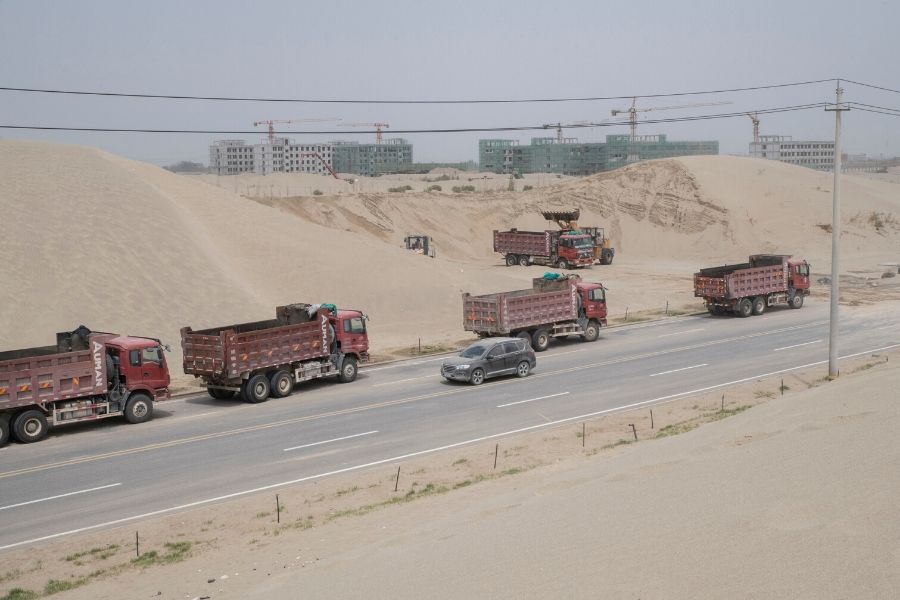
Inside China's push to turn Muslim minorities into an army of workers
The Muslim minorities are crucial to the government's strategy of social reengineering alongside the indoctrination camps, which have held 1 million or more Uighurs and Kazakhs
 Construction trucks at an industrial development zone under construction near internment camps in Hotan, China in the western region of Xinjiang, Aug. 4, 2019. The Communist Party wants to remold minorities in the Xinjiang region into loyal blue-collar workers to supply Chinese factories with cheap labor
Construction trucks at an industrial development zone under construction near internment camps in Hotan, China in the western region of Xinjiang, Aug. 4, 2019. The Communist Party wants to remold minorities in the Xinjiang region into loyal blue-collar workers to supply Chinese factories with cheap laborImage: Gilles Sabrie/The New York Times
KASHGAR, China — The order from Chinese officials was blunt and urgent. Villagers from Muslim minorities should be pushed into jobs, willing or not. Quotas would be set and families penalized if they refused to go along.
“Make people who are hard to employ renounce their selfish ideas,” the labor bureau of Qapqal, a county in the western region of Xinjiang, said in the directive last year.
Such orders are part of an aggressive campaign to remold Xinjiang’s Muslim minorities — mostly Uighurs and Kazakhs — into an army of workers for factories and other big employers. Under pressure from authorities, poor farmers, small traders and idle villagers of working age attend training and indoctrination courses for weeks or months, and are then assigned to stitch clothes, make shoes, sweep streets or fill other jobs.
These labor programs represent an expanding front in a major effort by China’s leader, Xi Jinping, to entrench control over this region, where these minorities make up about half the population. They are crucial to the government’s strategy of social reengineering alongside the indoctrination camps, which have held 1 million or more Uighurs and Kazakhs.
The labor bureau of Qapqal ordered that villagers should undergo military-style training to convert them into obedient workers, loyal to employers and the ruling Communist Party. “Turn around their ingrained lazy, lax, slow, sloppy, freewheeling, individualistic ways so they obey company rules,” the directive said.
The government maintains that the Uighur and Kazakh villagers are “rural surplus labor” and are an underemployed population that threatens social stability. Putting them in steady, supervised government-approved work, officials say, will erase poverty and slow the spread of religious extremism and ethnic violence.
©2019 New York Times News Service




